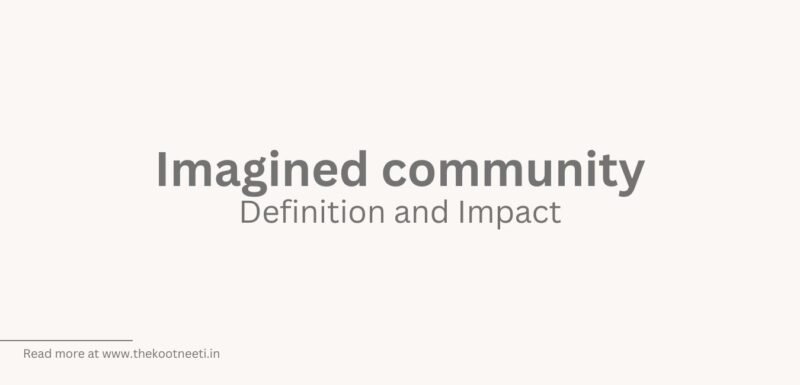Imagined community in International Relations: Definition and Impact

An imagined community is a concept developed by the political scientist Benedict Anderson to describe the way that nations and national identities are constructed and maintained. Anderson argued that nations are not natural or timeless entities, but rather are social constructions that are created and maintained through shared cultural practices, institutions, and narratives.
According to Anderson, nations are “imagined” in the sense that they are not based on direct personal relationships or shared experiences, but rather on a shared sense of belonging and identity that is constructed and maintained through shared cultural practices, such as language, religion, and history.
In international relations, the concept of imagined community has been used to understand the role of nationalism and national identity in shaping global politics and international relations. It has also been used to understand the construction and maintenance of other forms of collective identity, such as regional or ethnic identities.
Impact
The concept of imagined communities has had a significant impact on the way that we understand the formation and maintenance of national identities. It has challenged the idea that nations are natural or organic entities and has instead argued that they are constructed through shared cultural and historical experiences.
The idea of imagined communities has also had practical implications for how nations are governed and how they interact with one another. It has led to the recognition that national identities are not fixed or unchanging, but rather are constantly being negotiated and reinterpreted by different groups and individuals. This has implications for how national identities are represented and how they are used to shape political and social policies.
The concept of imagined communities has had a significant impact on the way we understand the formation and maintenance of national identities, and it has practical implications for how nations are governed and how they interact with one another.


















